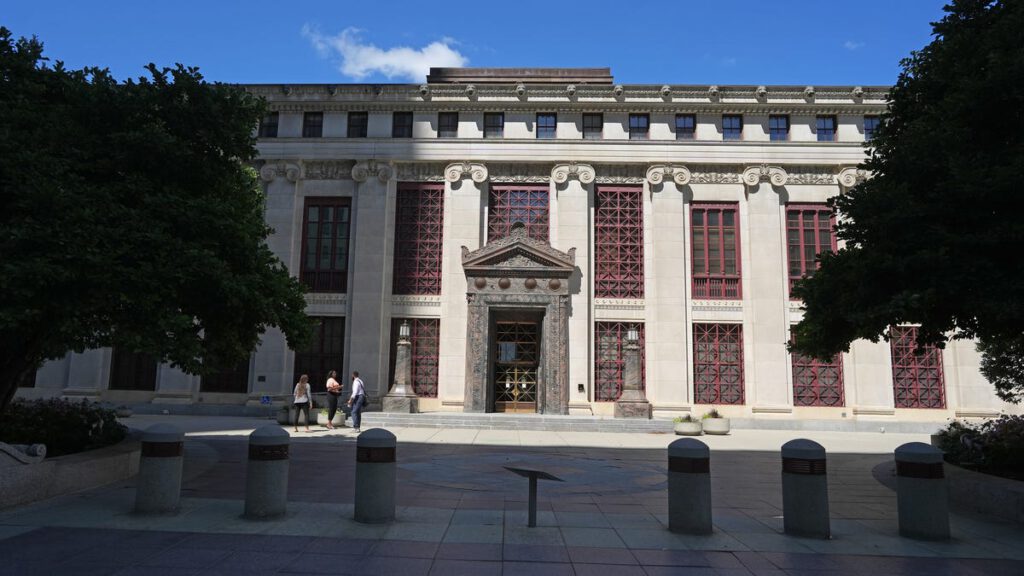WATCH: The Columbus Dispatch’s breaking news of the week for July 26, 2024
Here are some stories you may have missed on Dispatch.com and in the print edition of the Columbus Dispatch.
Columbus city departments were allowed to have employees work from home this week amid ongoing technology outages caused by a cybersecurity incident that began last Thursday.
Melanie Crabill, a spokeswoman for Mayor Andrew Ginther, said the city gave department heads the authority this week to allow employees to work from home on a case-by-case basis. She said the mayor’s office doesn’t track how many employees are not working from the office, and even though the human resources department tracks that data, the office doesn’t receive daily updates.
“It’s not as efficient as we hoped it would be,” Crabill said of the problems caused by the outages.
Crabill said employees working from home will be paid.
Christopher Moses, the city’s director of human resources services, said employees are working from home “intermittently,” with some coming into the office in the morning and leaving in the afternoon, or vice versa, depending on their duties.
City Hall doesn’t have internet, so office workers rely on Wi-Fi hotspots to do their jobs, which has posed a challenge. He said decisions are being made job by job, depending on the nature of the work.
“If they have to go home, we allow them that flexibility to get the job done,” Moses said.
The city’s work-from-home policy requires office employees to come into the office five days a week, and Moses said the city’s human resources department doesn’t know how many people are working from home because they expect the issue to be short-term.
The Dispatch saw employees leaving the City Hall complex at Broad and Front streets early Friday morning carrying packages.
Dispatch reached out to department heads to ask if they were sending employees home. The inspector general’s office said no employees had been sent home. A spokesperson for the Recreation and Parks Department said they were not aware of any employees being asked to go home.
Building and Zoning Commissioner Scott Messer said all of his staff work in the office and have access to the system they use to process permits, and that the system is available in the field, but he said “for each department director” that it may be easier for staff to access the system remotely because of ongoing technical issues.
“If there was a system in place that made it easy for people to work remotely, I would approve it,” Messer said.
Cybersecurity incident causes outages that paralyze city and services
The City of Columbus continues to deal with a cyber service outage caused by a cybersecurity incident on July 18 that forced the city to cut off internet connections, The Dispatch previously reported. The city has so far declined to say whether the cybersecurity incident was a ransomware attack.
Read more: A week into cyber crisis, Columbus mayor says goal is to get city fully operational as soon as possible
Some city services have been disrupted throughout the week, including the 311 computer system and some web services. The city’s email system was still not working as of Friday, The Dispatch previously reported. Crabill said the city expects email functionality to be restored on Monday.
Residents can still call 911, the non-emergency police number or 311, but some reports may have to be taken manually.
Mayor Ginther said Thursday that the city will prioritize restoring its public safety, public health and public works departments in the coming days.
The Dispatch previously reported that the city’s technology department “identified an anomaly” in the system on July 18. Mayor Andrew Ginther said in a statement Monday that the department took “immediate action” to “significantly” reduce the potential risk of infection by cutting off internet connections.
Ginther said in a statement that the city’s cybersecurity issue may have been caused by a city employee opening a malicious email.
Cybersecurity expert: Outage may be due to ransomware attack
Alex Hammerstone, a cybersecurity expert at “ethical hacking” firm TrustedSec, told the Dispatch that while the evidence isn’t all there, it’s a good bet to assume this could be a ransomware attack against the city.
“If you go outside and get wet, there’s a chance of something, but there’s a 99 percent chance it’s raining,” Hammerstone said.
He said malicious hackers target institutions like cities because they are sometimes attractive targets and hold large amounts of customer data that can be used or sold.
“Burglars go to places where they feel they have an easy way in,” Hammerstone said, “and often cities don’t have the budget or staff to build security programs.”
Hammerstone said if it was a ransomware attack, the city may not know about it yet or may have been advised by lawyers or law enforcement not to release that information yet.
“They may have been advised to keep it secret, or they just don’t know at this point,” Hammerstone said.
inquiry
The Coleberg Report

